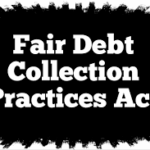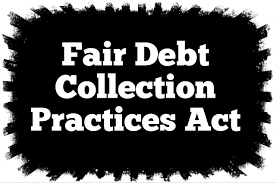Navigating the complexities of debt collection can often feel overwhelming, but did you know that there are laws designed specifically to protect you? The Fair Debt Collection Practices Act (FDCPA) is one such regulation, serving as a shield for consumers against unfair debt collection practices. Understanding how to effectively use the FDCPA can help you manage and dispute unwarranted debt collection attempts and can also play a crucial role in improving your credit score. But how exactly does this act work, and what rights does it afford you that can lead to tangible improvements in your financial health?
The FDCPA offers a variety of protections and stipulations, yet many are unaware of the full extent of their rights under this act or how to assert them. This guide will walk you through the key provisions of the FDCPA, help you identify when your rights are being violated, and show you how to take action to rectify these issues. By leveraging the FDCPA effectively, you can challenge unfair debt collection practices and ensure these interactions are accurately reflected in your credit report, potentially leading to long-term benefits for your credit status. What steps should you take if you suspect a violation, and how can this ultimately aid in enhancing your credit report? Let’s explore these questions together.

Key Provisions of the FDCPA: Protecting Consumers from Unfair Debt Collection
The Fair Debt Collection Practices Act (FDCPA) is a pivotal law in consumer financial protection, specifically designed to curb abusive debt collection practices. It applies to personal, family, and household debts, such as credit card debt, auto loans, medical bills, and mortgages. The FDCPA strictly prohibits debt collectors from engaging in deceptive, abusive, or unfair practices. Notably, collectors are forbidden from contacting debtors at inconvenient times—before 8 a.m. or after 9 p.m.—unless an agreement is in place, and they must cease contacting debtors at work if requested verbally or in writing.
Consumer Rights Under the FDCPA:
- Debt Validation: Debtors have the right to request debt validation to confirm the collector’s authority to collect the debt.
- Protection from Abuse: The use of threats, obscene language, or publicizing a debtor’s name on a ‘bad debt’ list is prohibited.
- Legal Recourse: Debtors can sue for Fair Debt Collection Practices Act violations, potentially receiving damages and additional compensation up to $1,000.
However, the FDCPA does not cover business debts or non-abusive debt collection efforts.
Strategies to Challenge Unfair Debt Collection Using the FDCPA
Identifying Fair Debt Collection Practices Act violations can empower debtors to stand against unfair practices. Common violations include repetitive calls meant to harass, misrepresentation of debt amounts, or failure to issue a debt validation notice within five days of initial contact.
Actions to Take Against Suspected Violations:
- Record Keeping: Maintain detailed records of all interactions with debt collectors, noting dates, times, and conversation details.
- Formal Complaints: File complaints with the Consumer Financial Protection Bureau (CFPB) or your state’s attorney general’s office.
- Legal Consultation: Consider consulting with a consumer rights attorney to explore legal actions.
Documenting all communications with debt collectors is crucial, as these records can be vital in legal proceedings or when filing complaints.

Improving Your Credit Score Through the FDCPA
Challenging inaccuracies on your credit report under the Fair Debt Collection Practices Act can directly enhance your credit score. If a debt collector fails to verify a disputed debt within 30 days, they must stop collection efforts and remove the entry from your credit report, potentially boosting your score.
Effective Communication with Credit Bureaus:
- Dispute Letters: Send clear, concise dispute letters to credit bureaus with copies of supporting documents.
- Follow-ups: Ensure that the credit bureaus have corrected the inaccuracies.
- Regular Reviews: Continuously monitor your credit report to ensure no reoccurrence of incorrect debt entries.
Maintaining an accurate credit report yields significant long-term benefits, such as better loan interest rates and higher credit approval chances.
Practical Examples and Actionable Steps for Using the FDCPA
Practical Scenarios and Responses:
- Scenario: Receiving late-night calls from a debt collector. Action: Document the call times and request in writing that the collector stops calling during those hours, referencing the Fair Debt Collection Practices Act.
- Scenario: Receiving a collection notice for an unrecognized debt. Action: Send a debt validation letter within 30 days requesting proof of the debt and creditor details.
Template Letters and Communication Tips:
- Use straightforward language in your letters.
- Send communications via certified mail with return receipt requested.
- Keep copies of all correspondence and related documents.
Maintaining Credit Post-FDCPA Dispute:
- Enroll in credit monitoring services to track changes to your credit report.
- Stay informed about your rights under the Fair Debt Collection Practices Act and other consumer protection laws.
By leveraging the Fair Debt Collection Practices Act effectively, you can protect yourself from unfair debt collection practices and enhance your financial well-being. Remember, being informed is your best defense in personal finance management.
Conclusion: Harnessing the FDCPA for Your Financial Empowerment
The Fair Debt Collection Practices Act (FDCPA) serves as a legal framework and a powerful tool for protecting your financial health and improving your credit score. By understanding and applying the protections offered under the Fair Debt Collection Practices Act, such as debt validation and the prohibition of abusive collection practices, you can effectively manage and contest unfair debt collection attempts. This proactive approach not only aids in maintaining your peace of mind but also ensures the accuracy of your credit report, which is vital for your financial future.

The steps outlined—from maintaining detailed records of debt collection interactions to challenging inaccuracies on your credit report—enable you to take control of your financial narrative. Remember, each action you take under the FDCPA fortifies your defense against unfair practices and contributes to a healthier credit status. As you move forward, let the principles of the Fair Debt Collection Practices Act serve as a reminder that you have the right and the tools to confront undue financial pressure. Isn’t it time you reversed the roles with debt collectors and took charge of your financial destiny?


